The 2020 UEFA European Football Championship, commonly referred to as 2020 UEFA European Championship, UEFA Euro 2020, or simply Euro 2020, is the 16th UEFA European Championship, the quadrennial international men’s football championship of Europe organised by the Union of European Football Associations
Euro 2020 groups.
Group A: Italy, Switzerland, Turkey, Wales
Group A of UEFA Euro 2020 is taking place from 11 to 20 June 2021 in Baku’s Olympic Stadium and Rome’s Stadio Olimpico. The group contains Turkey, host nation Italy, Wales and Switzerland.
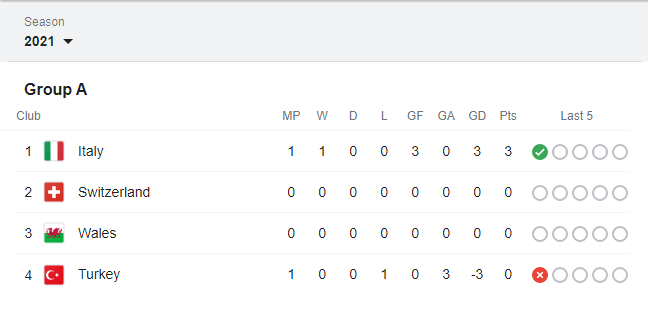
Group B: Belgium, Russia, Denmark, Finland
Group B of UEFA Euro 2020 will take place from 12 to 21 June 2021 in Copenhagen’s Parken Stadium and Saint Petersburg’s Krestovsky Stadium.[1] The group contains host nation Denmark, Finland, Belgium and host nation Russia. The head-to-head match between the hosts will take place at Denmark’s Parken Stadium.

Group C: Ukraine, Netherlands, Austria, North Macedonia
Group C of UEFA Euro 2020 will take place from 13 to 21 June 2021 in Amsterdam’s Johan Cruyff Arena and Bucharest’s Arena Națională. The group contains host nation the Netherlands, Ukraine, Austria and North Macedonia.

Group D: England, Croatia, Czech Republic, Scotland
Group D of UEFA Euro 2020 will take place from 13 to 22 June 2021 in Glasgow’s Hampden Park and London’s Wembley Stadium.[1] The group contains host nation England, Croatia, host nation Scotland and the Czech Republic. The head-to-head match between the hosts will take place at England’s Wembley Stadium.
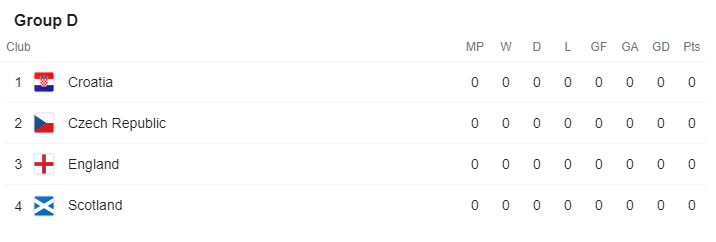
Group E: Spain, Poland, Sweden, Slovakia
Group E of UEFA Euro 2020 will take place from 14 to 23 June 2021 in Saint Petersburg’s Krestovsky Stadium and Seville’s La Cartuja. The group contains host nation Spain, Sweden, Poland and Slovakia.
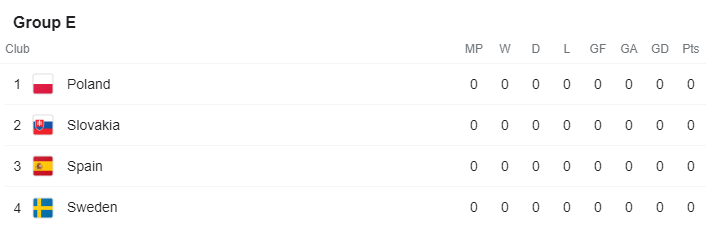
Group F: Germany, France, Portugal, Hungary
Group F of UEFA Euro 2020 will take place from 15 to 23 June 2021 in Budapest’s Puskás Aréna and Munich’s Allianz Arena. The group contains host nation Hungary, defending champions Portugal, world champions France and host nation Germany. The head-to-head match between the hosts will take place at Germany’s Allianz Arena.

Euro 2020 venues.
Stadio Olimpico, Rome
The Stadio Olimpico is the largest sports facility in Rome, Italy, seating over 70,000 spectators. It is located within the Foro Italico sports complex, north of the city. The structure is owned by the Italian National Olympic Committee and it is used primarily for association football.
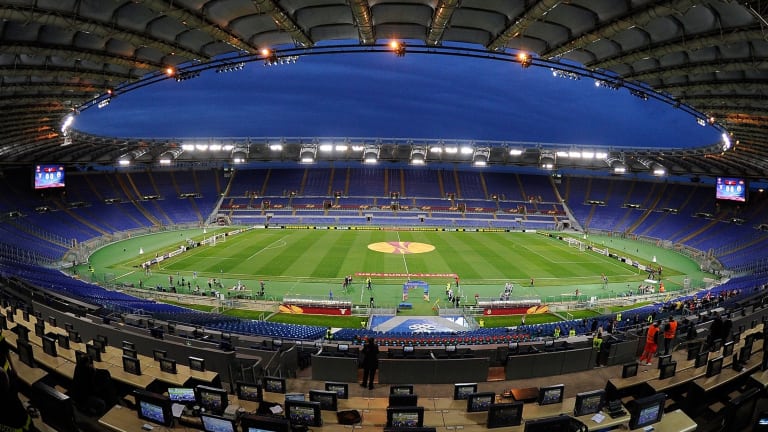
Olympic Stadium, Baku
Baku Olympic Stadium, is a 69,870-seat stadium, designed and constructed to meet the international standards for stadiums set by the Union of European Football Associations, the International Federation of Association Football and the International Association of Athletics Federations.
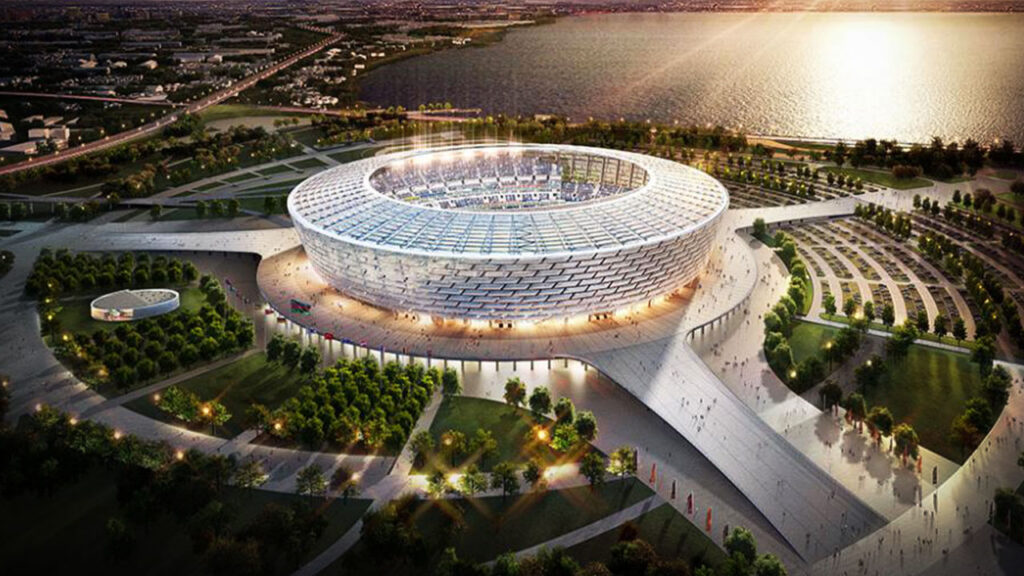
St Petersburg Stadium, Saint Petersburg
Krestovsky Stadium, known as Gazprom Arena for sponsorship reasons, is a retractable roof stadium with a retractable pitch in the western portion of Krestovsky Island in Saint Petersburg, Russia, which serves as home for FC Zenit Saint Petersburg. The stadium was opened in 2017 for the FIFA Confederations Cup.
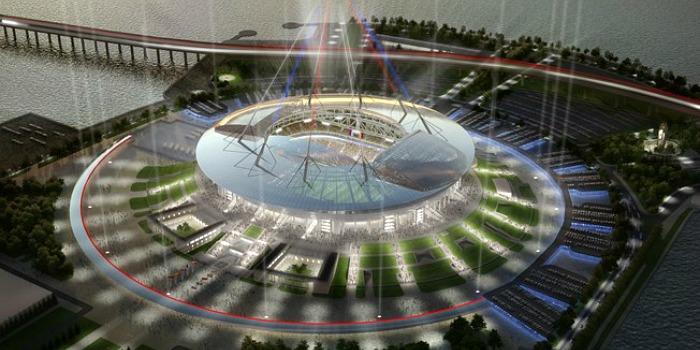
Parken Stadium, Copenhagen
Parken Stadium, also known simply as Parken and as Telia Parken, is a football stadium in the Indre Østerbro district of Copenhagen, Denmark, built from 1990 to 1992.
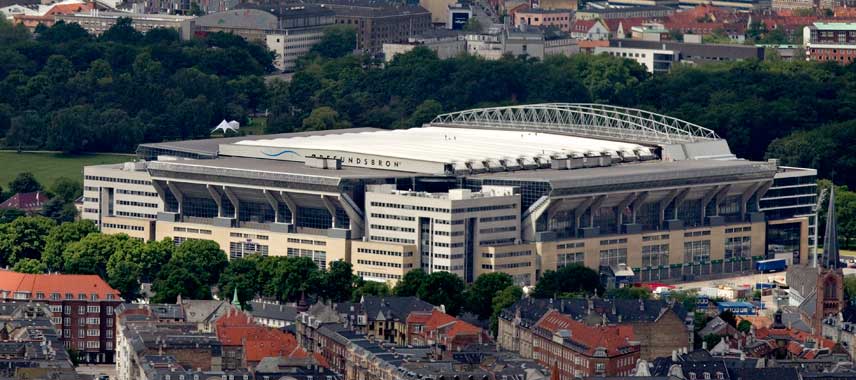
Johan Cruijff ArenA, Amsterdam
The Johan Cruyff Arena is the main stadium of the Dutch capital city of Amsterdam and the home stadium of football club AFC Ajax since its opening. Built from 1993 to 1996 at a cost equivalent to €140 million, it is the largest stadium in the country.
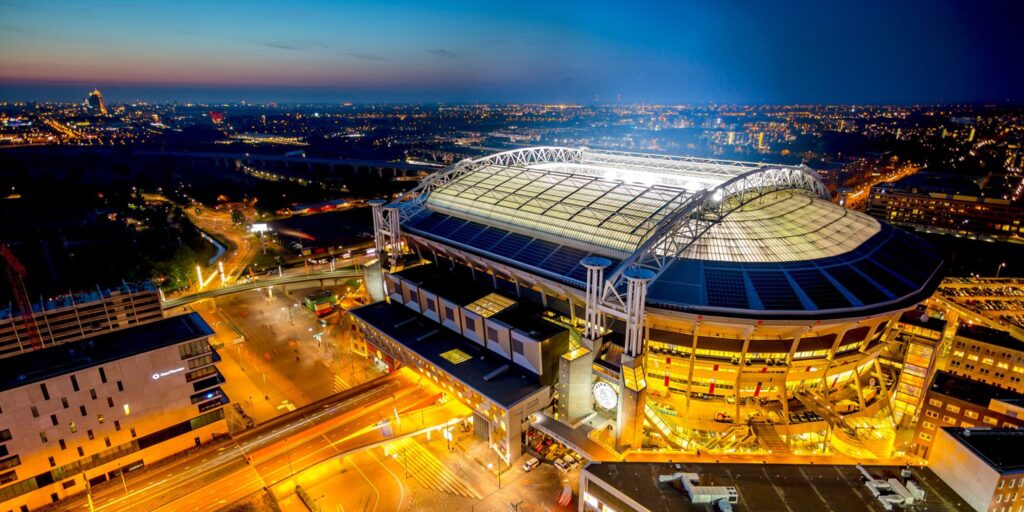
National Arena, Bucharest
Arena Națională is a retractable roof football stadium in Bucharest, Romania. It opened in 2011 on the site of the original National Stadium, which was demolished from 2007 to 2008. The stadium hosts major football matches including home matches of the Romania national football team, and the Romanian Cup Final.
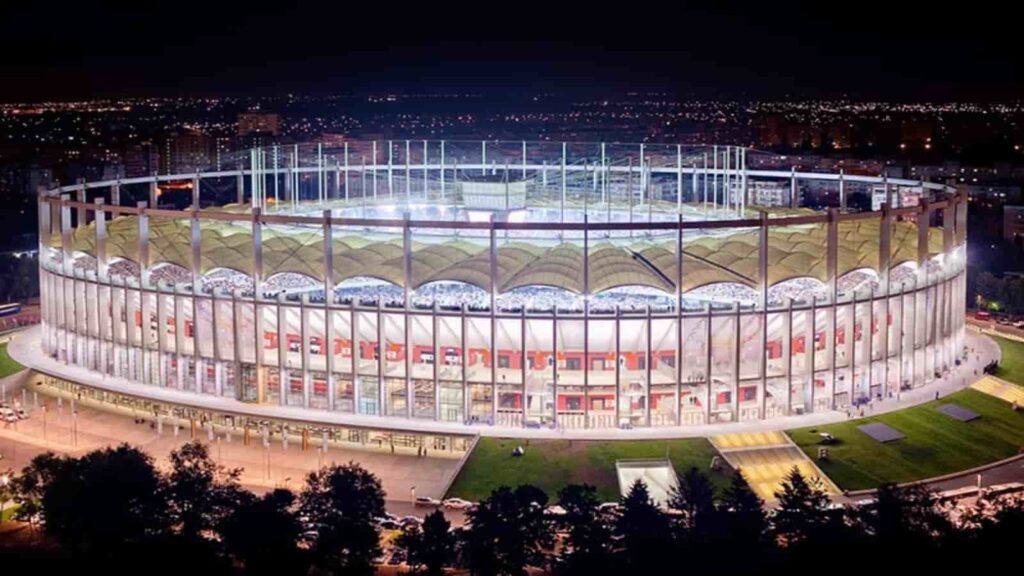
Wembley Stadium, London
Wembley Stadium is a football stadium in Wembley, London. It opened in 2007 on the site of the original Wembley Stadium, which was demolished from 2002 to 2003. The stadium hosts major football matches including home matches of the England national football team, and the FA Cup Final.
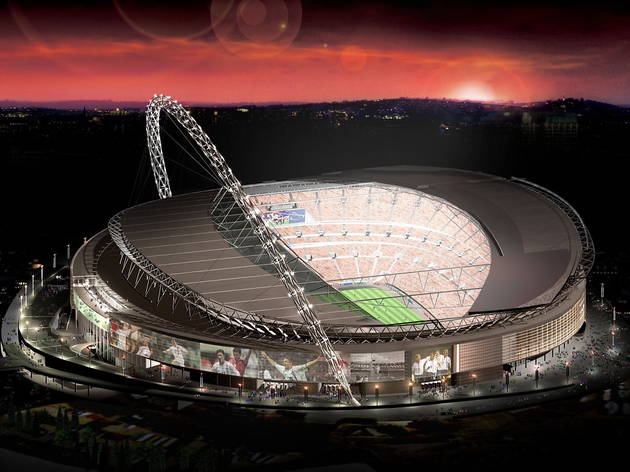
Hampden Park, Glasgow
Hampden Park is a football stadium in the Mount Florida area of Glasgow, Scotland. The 51,866-capacity venue serves as the national stadium of football in Scotland. It is the normal home venue of the Scotland national football team and was the home of club side Queen’s Park for over a century.
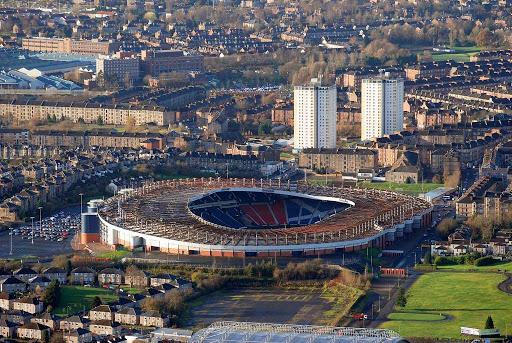
Estadio La Cartuja, Seville
Estadio La Cartuja, officially known as Estadio La Cartuja de Sevilla, is a multi-purpose stadium situated in the Isla de la Cartuja in Seville, Spain. It is used mostly for football and it is commonly referred to as simply ‘la Cartuja’. It was completed in 1999 for the World Championships in Athletics
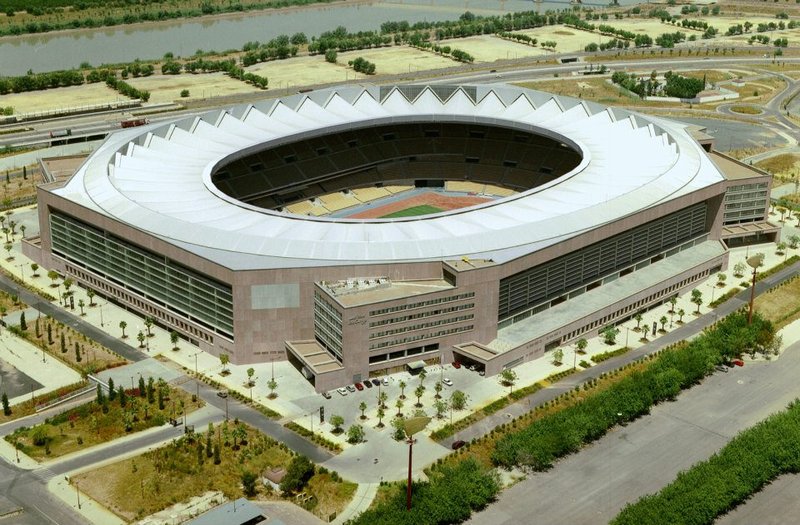
Fußball Arena Munchen, Munich
Allianz Arena is a football stadium in Munich, Bavaria, Germany with a 70,000 seating capacity for international matches and 75,000 for domestic matches. Widely known for its exterior of inflated ETFE plastic panels, it is the first stadium in the world with a full colour changing exterior.
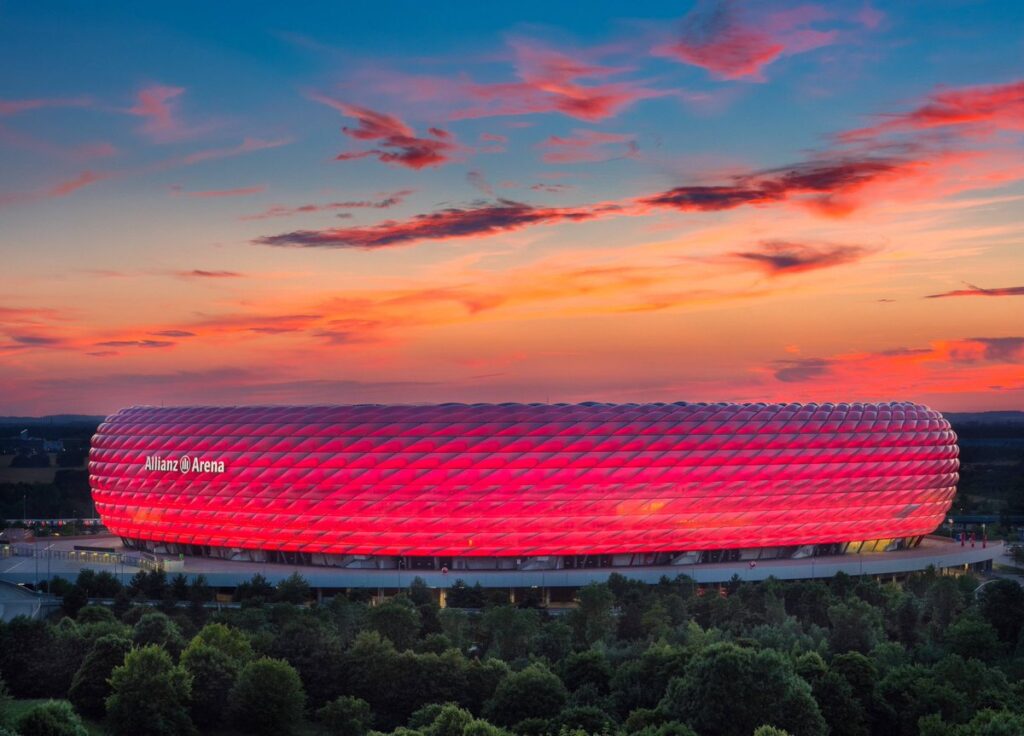
Puskas Arena, Budapest
The Ferenc Puskás Stadium, or formerly People’s Stadium was a multi-purpose stadium in the 14th district of Budapest, Hungary. It was situated between the Puskás Ferenc Stadion and the Keleti pályaudvar metro stations. It was used mainly for football matches
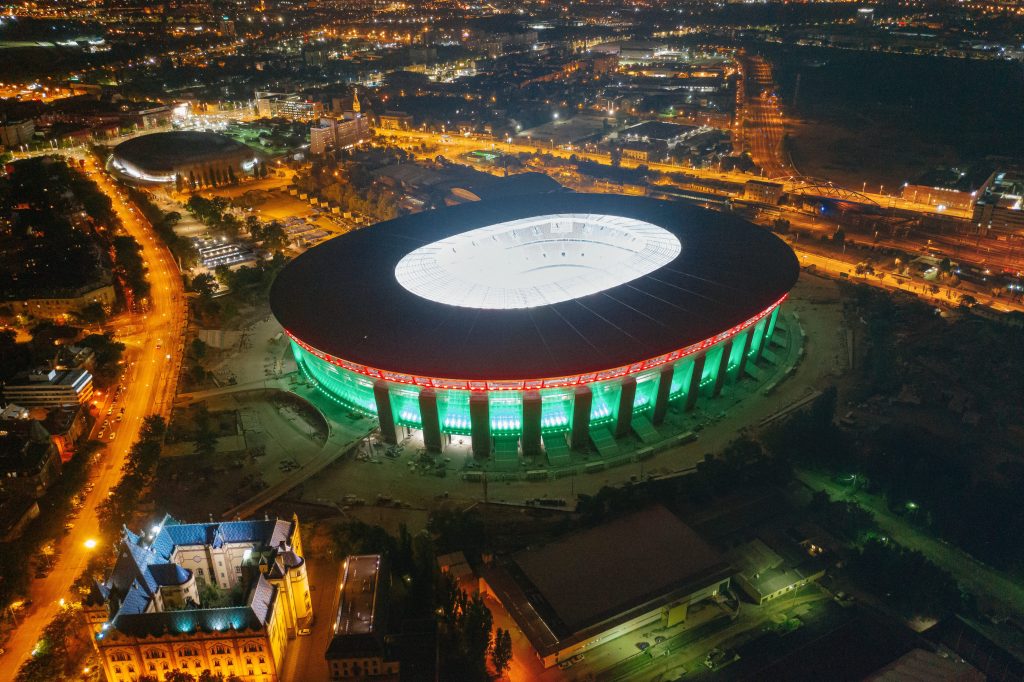
SOURCE: SKY SPORTS.





